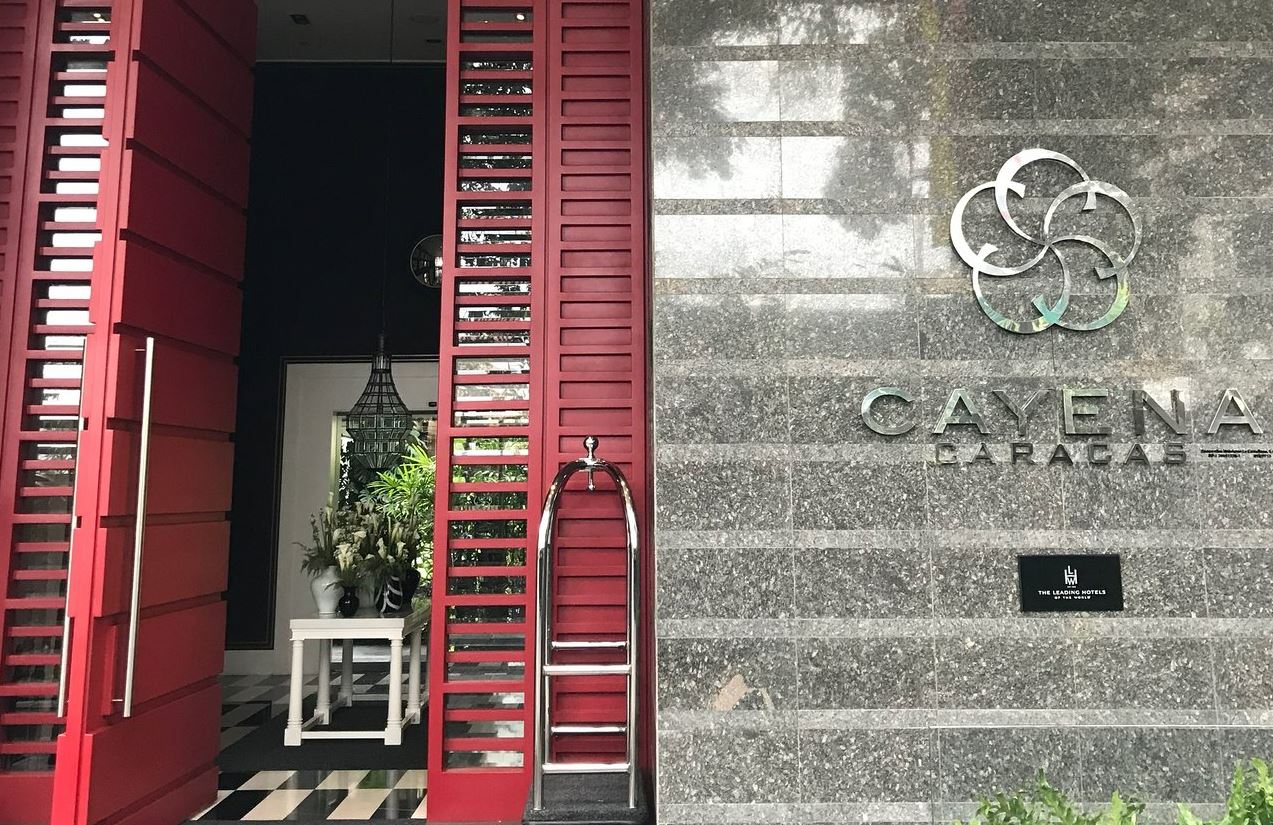US$950 for a night in eastern Caracas? Yes, it is possible.
And the fact is that luxury hotels in the Venezuelan capital have not stopped operating and even adapting their prices to international standards, despite the economic crisis in the country, above and beyond the slight economic rebound.
Opened in 2014, the Cayena hotel, the first of The Leading Hotels of the World chain in Venezuela, became one of the most expensive stays, with rooms ranging from US$400 to US$950 a night, simulating an oasis among the fast-paced and turbulent city.
Discreet and with a conservative entrance, the Cayena, located in La Castellana, east of Caracas, is a favorite of executives, diplomats, and artists who have recently visited the country.

It was chosen by the new Colombian ambassador to Venezuela, Armando Benedetti, during his first working visits since he did not yet have a fully equipped residence.
“It is the comfort, security, and confidentiality that we like the most”, says a frequent guest who preferred not to be identified. And that is precisely the objective of the boutique hotel, which, as stated on its website, tries to give the sensation of being in a private refuge.
Among suites and simple rooms, the Cayena not only stands out for its elegance and high prices in an area where it competes with other hotels of trajectory and is equally luxurious as the Renaissance, with cheaper accommodations from US$200 a night. It also stands out for its high occupancy.
For the president of the National Federation of Hotels of Venezuela (Fenahoven), Alberto Vieira, the recovery of the sector during the last year has been notorious, with occupancy in June of 34%, which represents 12% above the year 2021, precisely after the technical closure of many of them during the pandemic.
Of course, the luxury hotel category has been the most benefited.
At the head of Fenahoven, which brings together 287 hotel establishments, among them some rated five stars, Vieira assures that the profitability of this group in recent months has been subject to the premium tourism that has been boosted in the country, with visits from Russian and Iranian citizens, but also with business people willing to invest.
“They have not done badly attending this premium segment, and they also have rates substantially different from those of our guild, which are the most modest hotels, which allows them to maintain a cost and service structure better than other hotels in the country, although those have the great intentions of attracting tourists as well,” explains Vieria in conversation with Bloomberg Linea.
He considers that the positive balance that some luxury hotels may be leaving does not apply to all levels of the sector due to the failures in public services, to which not all can adapt, while tourism continues to be limited.
Five years ago, utilities represented less than 8% of the cost structure; today, they represent close to 50%, which complicates the operation of most 3-star hotels.
In addition, the government controls premium tourism in the country through cultural agreements with allied countries such as Cuba, Russia, or Iran, concentrating occupancy and benefiting few.
“They have talked to us about tourism proposals. They have told us that they will come from Cuba and that it will be more commercial tourism, they have also talked to us about Poland, that is, a few countries, but one as a hotelier says that I don’t only want those from Russia, I want them all to come, but of course, that goes hand in hand with connectivity,” Vieira adds.
The current focus, in his opinion, remains on business tourism, which, although seen with high expectations, does not meet the need for occupancy required by the entire sector.
“It’s not bad, a contingent of executive tourists is coming, which will generate revenues for the hotels and related activities, but traditional tourism also needs to be promoted,” he points out.
There are at least ten five-star hotels in Caracas that have managed to hold on after the pandemic and in the face of the national economic situation, which has registered a slight and specific improvement, while the different sectors have found a space for reinvention.
The Venezuelan Association of Five Star Hotels (Avecintel) did not immediately respond to Bloomberg Línea’s request for comment on the matter.
With information from Bloomberg Línea

